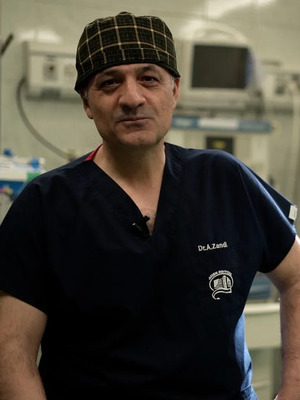Weight loss surgery helps you to lose the excess fat in your body which can affect your overall health and leads to different medical problems such as; high blood pressure, heart diseases, type 2 diabetes, sleep apnea and etc. weight loss surgery is prescribed for people who are suffering from obesity and cannot lose weight by traditional means and diets.
The surgery cause weight loss by restricting food intake with an interruption in digestive process. After operating this kind of surgery it is necessary to undergo permanent lifestyle changes, including maintaining a healthful and balanced diet and doing regular exercises.
There are 6 types of bariatric surgery available. Each type has advantages and disadvantages, and this page will help you decide which one is right for you.
Here is a very brief description of how each procedure will help you lose weight:
- Gastric Sleeve – you will feel less hungry generally & full sooner while eating
- Gastric Bypass – you will feel full sooner while eating & absorb fewer minerals
- Duodenal Switch – you feel less hungry generally & full sooner while eating, absorb fewer calories and minerals
- LAP-BAND® – you will feel full sooner while eating
- Gastric Balloon – you will temporarily feel full sooner while eating (balloon removed after 6 months)
- AspireAssist – drain a portion of stomach contents after eating and absorb fewer calories
It is worth mentioning that Iran is the best choice for having this kind surgery as the surgeons are totally experienced and the price is affordable to all patients.

The experience and frequency of surgery leads to mastery, and the lack of complications after surgery for patients shows the doctor’s commitment to the patient. Dr. Abdullah Zandi, with more than 24 years of experience in the field of bariatric surgery, and using the most up-to-date American equipment and according to the anatomy and genetics of each person, performs his surgeries in order to not only maintain the health of the patient, but also reduce the complications caused by the surgery. At least as much as possible.
Bariatric & metabolic Surgery
Metabolic/bariatric surgery is the most effective and long-lasting treatment for severe obesity resulting in significant weight loss and the improvement, prevention or resolution of many related diseases including type 2 diabetes, heart disease, hypertension, sleep apnea and certain cancers.
Studies show bariatric surgery may reduce a patient’s risk of premature death by 30-50%.
These terms are used in order to reflect the impact of these operations on patients’ weight and the health of their metabolism (breakdown of food into energy). In addition to their ability to treat obesity, these operations are very effective in treating diabetes, high blood pressure, sleep apnea and high cholesterol, among many other diseases. These operations also have an ability to prevent future health problems. The benefits allow patients with obesity who choose to undergo treatment to enjoy a better quality of life and a longer lifespan.
Sleeve Gastrectomy
The Laparoscopic Sleeve Gastrectomy, often called the “sleeve”, is performed by removing approximately 80% of the stomach. The remaining stomach is the size and shape of a banana.
Roux-en-Y Gastric Bypass (RYGB)
The Roux-en-Y Gastric Bypass, often called the “gastric bypass” . It is one of the most common operations and is very effective in treating obesity and obesity related diseases. The name is a French term meaning “in the form of a Y .
Biliopancreatic Diversion with Duodenal Switch (BPD/DS)
The Biliopancreatic Diversion with Duodenal Switch, abbreviated BPD-DS, begins with creation of a tube-shaped stomach pouch similar to the sleeve gastrectomy. It resembles the gastric bypass, where more of the small intestine is not used.
Single Anastomosis Duodeno-Ileal Bypass with Sleeve Gastrectomy (SADI-S)
The Single Anastomosis Duodenal-Ileal Bypass with Sleeve Gastrectomy, referred to as the SADI-S is the most recent procedure to be endorsed by the American Society for Metabolic and Bariatric Surgery. While similar to the BPD-DS, the SADI-S is simpler and takes less time to perform as there is only one surgical bowel connection.

